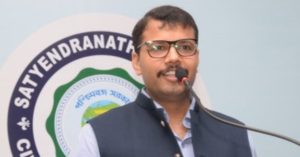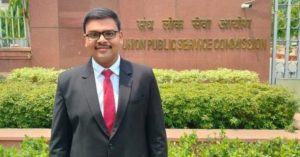This Dynamic IAS Officer Has a Village Named in Her Honour. Here’s Why!
“I wanted to make a connection with them, and it wasn’t just about being able to greet them,” dimples the IAS officer who learned Gondi in three months.

“My posting was rushed as the clashes took a violent turn. It was almost an overnight move for me. The mistrust was at an all-time high when I took charge. The issue at hand was sensitive and needed subtlety and mature handling,” recollects Divya Devarajan, a 2010-batch IAS officer about her posting to Adilabad, Telangana amidst the tribal conflict of 2017.
With a firm belief in the power of dialogue and discourse, she knew that she had to find a way to get through the community for arbitration to work. Within three months, the solution-driven lady became proficient in the language of the Gonds (Gondi), enough to have a conversation with the people. And her efforts paid off.
The people only wanted someone to listen. And she did.
“Once they realised I could speak their language, they poured their hearts out. In three months, the scene of the panchayats meetings went from the groups sitting in pindrop silence to speaking freely,” says Divya.
From appointing special tribal coordinators, language translators in government hospitals, making the administrative office more accessible, to learning the language herself, Divya went from being just an “Officer Madam” to a member of their families.
And now, as a new District Collector takes charge, the villagers paid their tribute to her by christening a village in her name.
A Village named Divyaguda – A Tribute to an IAS Officer

Recently, the denizens of Adilabad named a village “Divyaguda” in Divya’s honour. This gesture shows the kind of impact she has left on the people and their gratitude towards her for bringing a change in their lives.
“If I were still in the district, I would have convinced them not to do this,” smiles Divya who was appointed as Secretary and Commissioner for Women, Child, Disabled and Senior Citizens in February 2020.
The community that Divya worked so closely with won’t forget the proactive lady who believed in providing quick solutions to several issues. Homing in on the basic problems that the region faced – high rates of illiteracy, unemployment, sanitation, irrigation health and floods, among others, she also worked incessantly to resolve the conflicts in the area.
“I appointed a special officer for the welfare of particularly vulnerable tribal groups to address their issues with more focus and better efficacy. It was important to understand their issues from their perspective, rather than rushing in with changes that were seen to be right by me,” adds the bureaucrat.
Adilabad is a region with a history of intertribal violence. From curfews to shutting down of data connectivity, the region had seen it all. In such a situation, the open-minded and soft-spoken Divya managed to earn the trust of the tribals and find a place in their hearts.
Maruthi, a tribal leader from the Thoti community, a particularly vulnerable section, who was also instrumental in naming the village – Divyaguda, tells TBI, “We have had several collectors come and take charge – would you believe me if I said that the first time I stepped into the Collector Office was when Divya madam took charge? Until then no one seemed to care.”
When asked about the impact the IAS officer created in their lives, he shares, “First and foremost, she made the office accessible to us. She visited each household in the village and knew us all by our names.”

The region where Maruthi stays in prone to annual flooding, and after Divya took charge, she took steps to level the land which helped to a great extent. “We are tribals, we do not have the means to get any big gift but wanted to ensure that generations after me also acknowledge the work that Divya madam did for us, and hence we named our village after her.”
Learning their Language, Winning their Trust
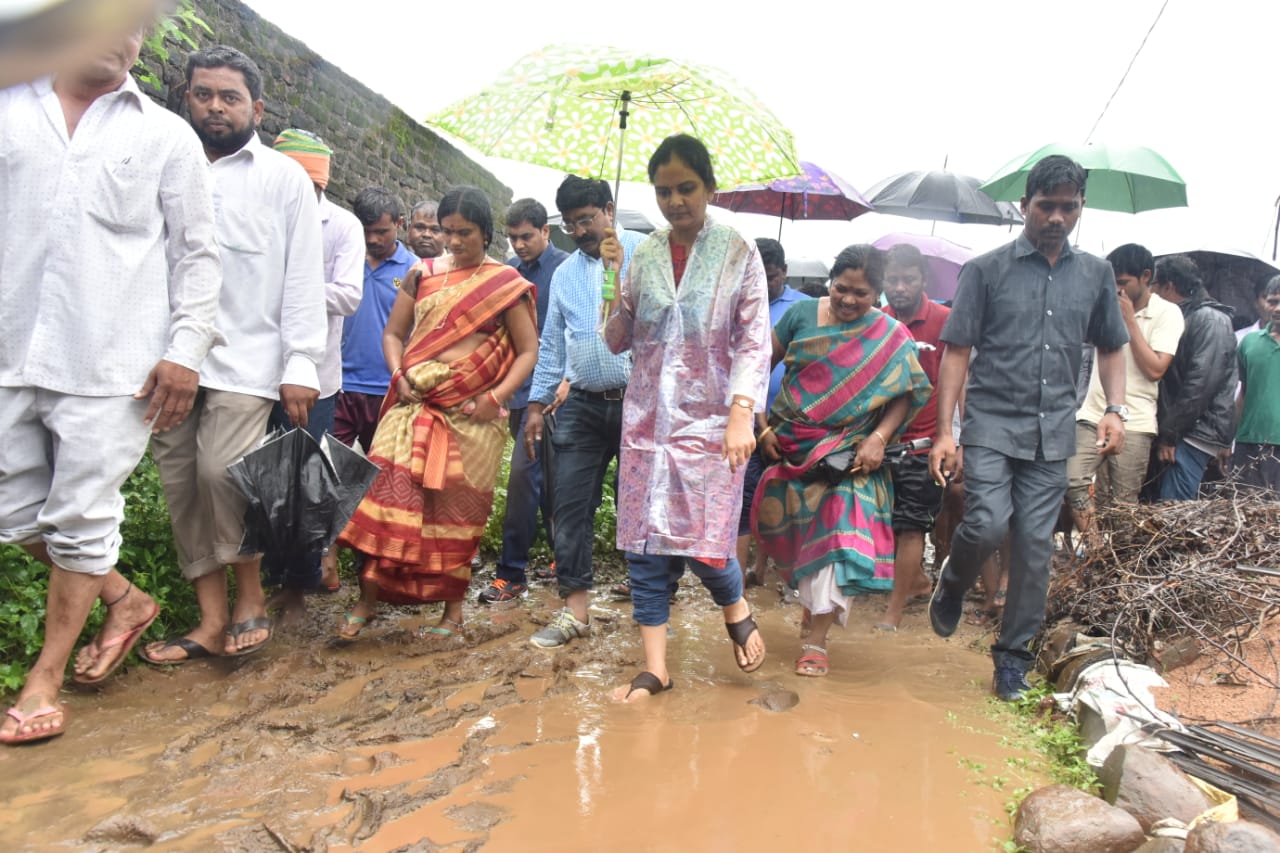
Many bureaucrats before Divya had tried to learn Gondi, one of the tribal languages spoken in Adilabad, in an attempt to effectively communicate with them. While a majority of officers stopped with the basics, Divya persisted and learnt enough to be able to hold meaningful conversations with them.
“I wanted to make a connection with them, and it wasn’t just about being able to greet them,” dimples Divya. Each day, after work, she diligently spent some time with Durwa Bhumanna, a senior announcer of All India Radio station in Adilabad.
The fact that Divya learnt the language was of great advantage to her as the issues faced by the people started coming to the fore. They started to trust her as they saw her make a genuine effort to understand them. She helped solve certain long-pending land issues in favour of tribals which were represented in the Monday Grievance Redressal sessions. Also, she streamlined cotton procurement and created platforms for tribals to access Minimum Support Price for their produce.
“It was important for us to start a meaningful dialogue with the groups,” says Divya. “Earning their trust was difficult, we were seen as people who had come to take away their rights from them, but we managed to find a middle ground,” says Divya.
Knowing that a language barrier may prove to be a bottleneck in communication, the IAS officer also appointed a Special Tribal Coordinator and Gondi language translators in the District Hospital (RIMS) to ensure better access to treatment.
Helping the People Learn their Rights
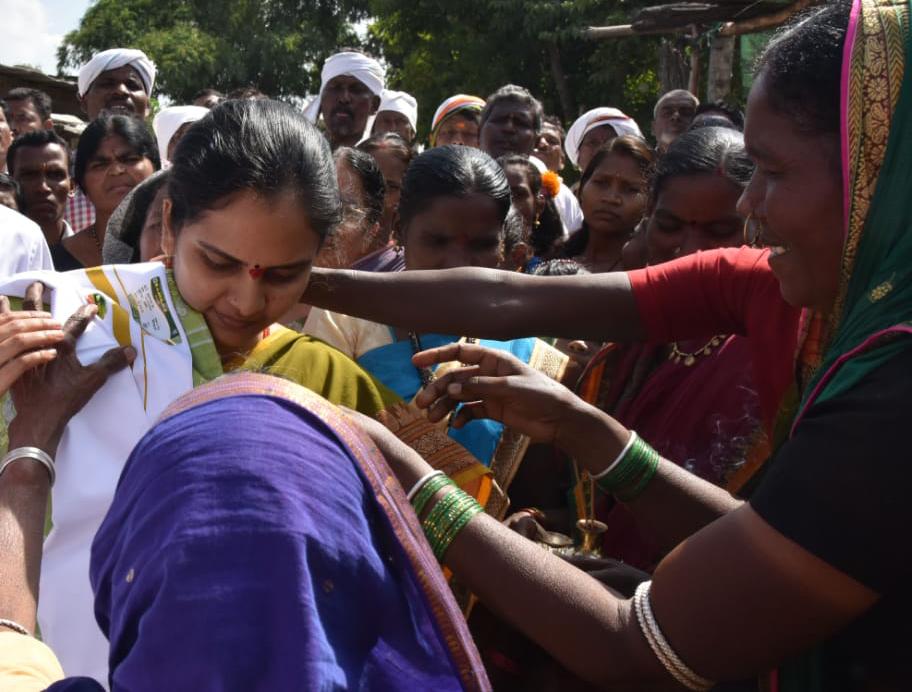
Divya’s primary thrust in Adilabad was to encourage the aggrieved tribes to use the legal and constitutional means to find solutions to their problems.
To that end, she appointed PESA (The Provisions of the Panchayats (Extension to Scheduled Areas Act, 1996) coordinators at Gram Panchayat level and quickly filled the vacancies to create awareness on their rights and how to use them. She also helped revive their traditional panchayats called Rai Centers and engaged them in developmental activities.
Furthermore, to duly honour and preserve the culture of the tribal communities, Divya made efforts to officially support their main festivals like Dandari-Gussadi and Nagoba Jatra and document their traditions in the form of a documentary.
I asked Divya, who pursued engineering from BITS Pilani, about her motivation to become an IAS officer, and she took me back to her childhood.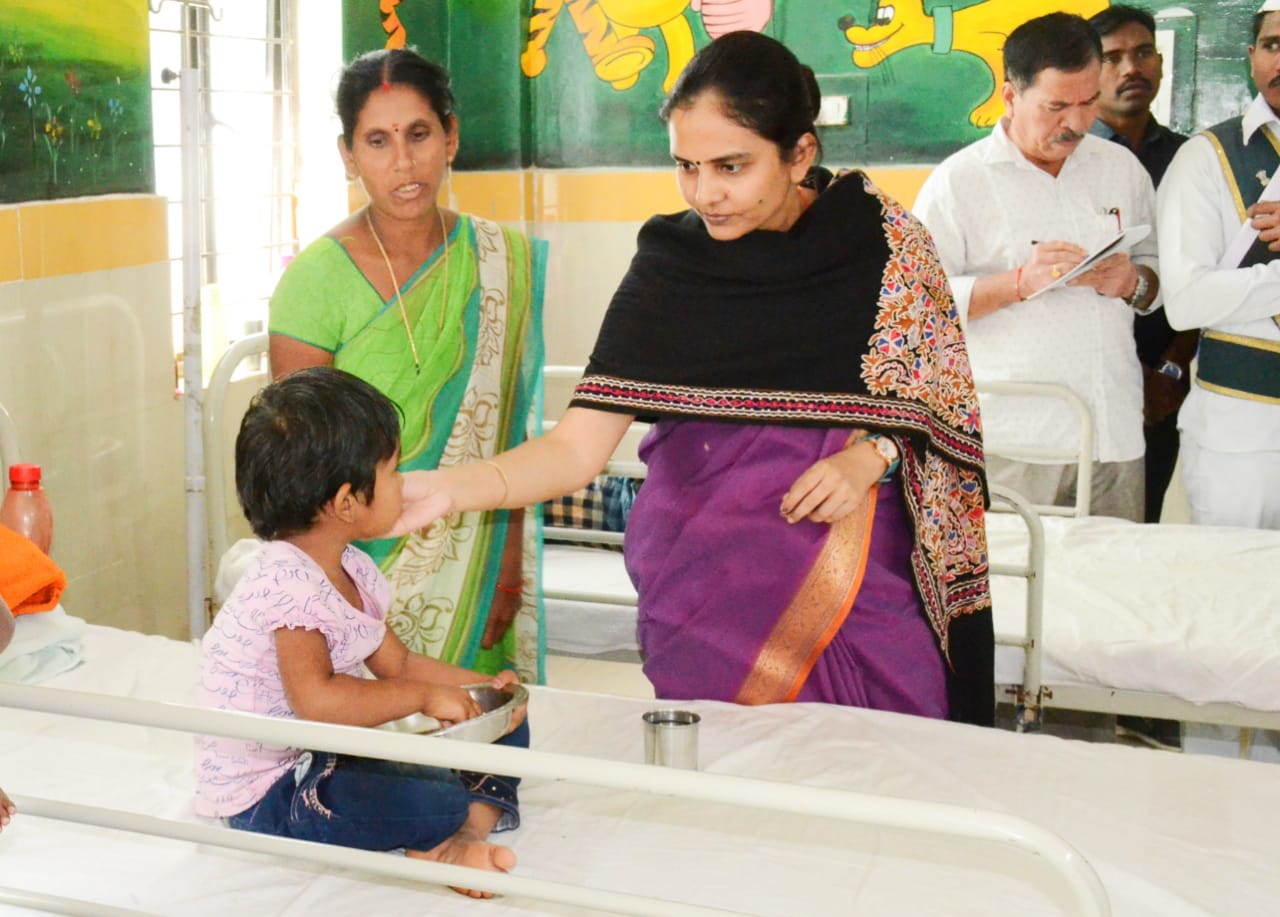
Divya speaks about her grandfather, who was a farmer in Tamil Nadu. She says, “I saw how the loan system worked and how inadvertently they all (farmers) got pulled into it and lost so much. I have seen my grandfather hide in the local temple out of sheer fear of the officials coming to collect the money.”
This incident made her realise how much the administration can do to help farmers, and change their lives by listening to their problems and giving concrete solutions. In Adilabad, she provided monetary and ambulance support to tribal patients who needed surgeries and better treatment in Hyderabad whenever needed.
Another reason behind her career choice was Divya’s father, who worked with the Tamil Nadu Electricity Board (TNEB). “He would often speak about the joy he felt at serving the people. Back in the 60s when he helped electrify villages, the happiness that he saw on farmers’ faces was his job satisfaction and I wanted to feel that as well,” she says.
Divya realised early that being part of the service would allow her to make a large-scale impact. It seems the IAS officer is already on the right track if the love of the people in Adilabad is anything to go by. After all, how many IAS officers get a village named after them?
“On a lighter note, I have had some of my friends call me and put in a request to have a small lane named after them as well,” laughs Divya, who feels she has miles to go and people to help.
(Edited by Saiqua Sultan)
Like this story? Or have something to share?
Write to us: [email protected]
Connect with us on Facebook and Twitter.
This story made me
- 97
- 121
- 89
- 167
Tell Us More
We bring stories straight from the heart of India, to inspire millions and create a wave of impact. Our positive movement is growing bigger everyday, and we would love for you to join it.
Please contribute whatever you can, every little penny helps our team in bringing you more stories that support dreams and spread hope.






